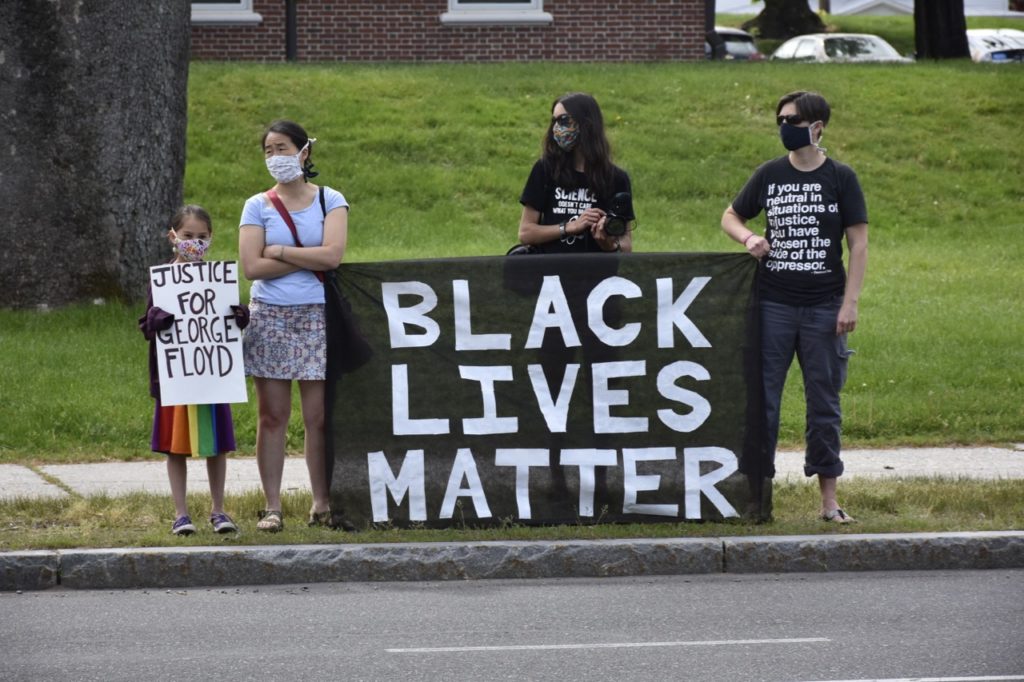UMass Research Shows Black Lives Matter Protests Associated With Decrease In Police Homicides

Vigil protesting the killing of George Floyd. Amherst Common, May 31, 2020. Photo: Art Keene
Source: UMass News And Media
In the five years following the beginning of the Black Lives Matter (BLM) movement in 2014, places that have had BLM protests experienced a 15-20% decrease in police homicides – approximately 300 fewer deaths – according to new research by UMass Amherst economist Travis Campbell.
Campbell found a 16.8% average reduction of lethal use-of-force associated with BLM protests, a number that is, he writes, “remarkably stable.” He also found that the gap in police homicides between places with and without protests has widened over the years, and is widest when protests are large or frequent.
“The payoff for protesting is substantial,” writes Campbell, who is currently pursuing his doctorate in economics. “Every five of the 1,654 protests in the sample correspond with approximately one less person killed by the police over the following years.”
Campbell presents his findings in “Black Lives Matter’s Effect on Police Lethal Use-of-Force” – an early, non-peer-reviewed version which is available online– and has made the data supporting the findings of his study openly available.
“The effects of Black Lives Matter protests have been debated often in public discourse,” Campbell says. “Many diverse and often polarizing opinions have been expressed about the impact of Black Lives Matter protests on policing and crime, but many such opinions are not supported by data. Despite the size and persistence of this social movement, there is a paucity of rigorous research about its impacts. I therefore decided to apply scientific methods to analyze available data to establish objective measures of how this movement is shaping our society, for better or worse.”
Campbell notes, “The decrease in lethal use-of-force may be partially explained by expansions in the use of police body cameras and community policing, tarnished community cooperation/reporting, and a so-called ‘Ferguson Effect’ – low police morale/effort leading to a rise in non-police homicides and fall in low-level arrests. Fewer property crimes, but more murders, are reported to agencies with local protests, while the share of total property crimes cleared by arrests falls.”
“BLM protests were associated with a reduction in police officer-involved fatalities,” Campbell says. “While reduced police-related fatalities is a very desirable effect, it is important to understand the factors that contributed to this effect. My research found that decreased police-related fatalities after BLM protests can be attributed to three factors: 1) improved policing practices; 2) damaged community trust of the police; and 3) decreased policing effort. While improved policing practices are desirable and perhaps one of the intended effects of protests, decreased trust and reduced police effort have the potential to adversely affect communities by increasing crime. Campbell hopes that understanding both the desirable and undesirable effects of protests will lead to efforts by both the protest movement leaders and police leadership to maximize the good outcomes while attenuating the undesirable effects of mistrust of police and reduced police effort.

1 thought on “UMass Research Shows Black Lives Matter Protests Associated With Decrease In Police Homicides”